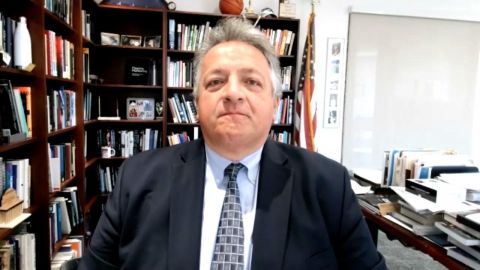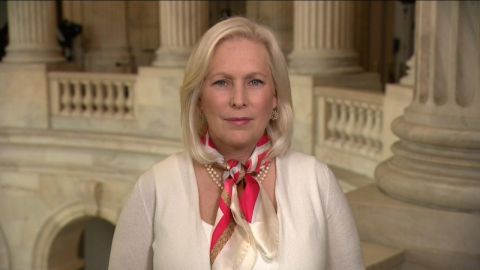Read Transcript EXPAND
SEN. KIRSTEN GILLIBRAND (D-NY): So, first of all, if someone is sexually assaulted, when that report is made, the investigation will take place, just as it does today. But what our bill does is, when the investigation is completed, and recommendations are made by the investigators, that case file will now go to a trained military prosecutor who has experience in these types of cases, but also does not necessarily know the accused or the accuser, so they have no bias. Today, that decision is made by a commander. And, oftentimes, commanders do not have adequate training. They aren’t lawyers, and they aren’t criminal justice lawyers. And they often know the assailant or the survivor. And so, unfortunately, we have seen bias in the system. And so the way to solve the problem is professionalize it. And it’s a decision that our allies have long made. The U.K., Israel, Canada, Germany, Australia, they took all serious crimes out of the chain of command, and gave that decision point to trained military prosecutors, which is what we are recommending.
GOLODRYGA: You have been working on this bill for many years now. And I know you have heard the pushback. But, from our viewers, let’s give them a sense of what that is and what that entails. According to the AP, military service leaders fear that shifting prosecution cases from the chain of command could decrease the number of prosecutions and delay the cases and prevent future cases and prevent less — prevent help for victims as well. What is your response to that argument?
GILLIBRAND: Well, first of all, I don’t think it can get any worse. Today, for example, there were approximately 20,000 cases that the DOD estimated in the entire military, and only over — just over 200 ended in conviction. So you can’t get worse. And so I believe, if the set of eyes that first sees these case files is highly trained and unbiased, you’re going to get the right cases moving forward, and you’re going to get more in conviction. I think it makes a difference and I think it will begin to change the climate and begin to change the system.
GOLODRYGA: It’s disheartening when you start to answer with, it can’t get worse, right?
GILLIBRAND: Right.
GOLODRYGA: And we said women face a 5 percent chance of being sexually assaulted in the military. And those are the women and the victims who choose to come forward. So many of them are silent throughout the process, including well known figures like former senator from Arizona, Martha McSally, the first woman to fly in combat in the air force. She testified before Congress in 2019 about her own experience and her own sexual assault while she was in service. Let’s listen.
(BEGIN VIDEO CLIP)
FMR. SEN. MARTHA MCSALLY (R-AZ): I am also a military sexual assault survivor. But unlike so many brave survivors, I didn’t report being sexually assaulted.
About This Episode EXPAND
In an era of intense partisanship in Washington, one Democratic senator stands out for her willingness to cross the aisle in pursuit of legislation she’s been trying to get passed for over a decade.
LEARN MORE



